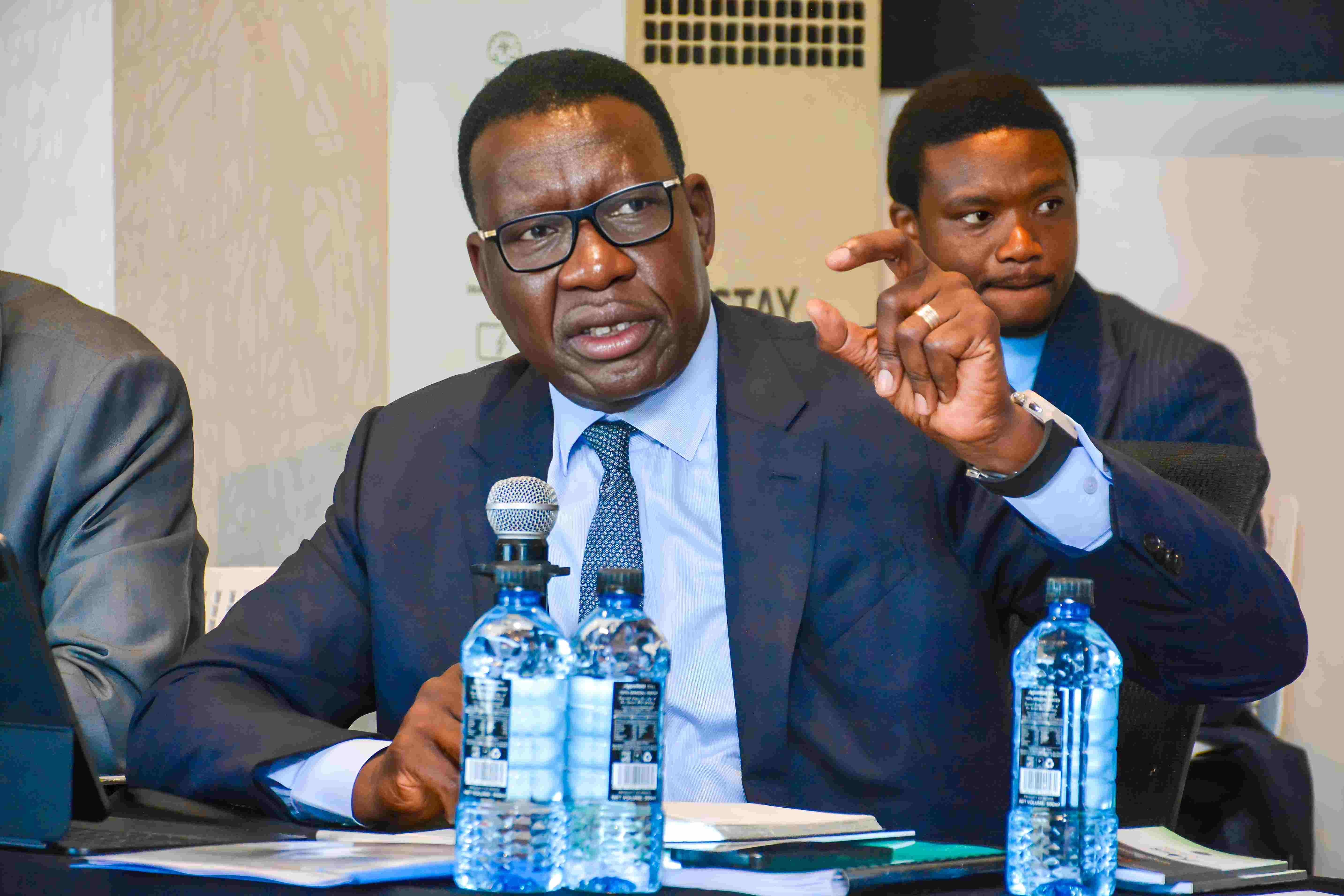No secrecy in roads fund plan, says CS Chirchir

Chirchir clarified that the securitisation is not new debt but rather a strategic financial solution to address a backlog of pending bills amounting to Sh175 billion, inherited from the previous administration
Roads and Transport Cabinet Secretary Davis Chirchir has defended the government’s move to securitise the fuel levy, insisting the process is transparent, lawful, and aimed at unlocking funds to settle verified pending bills in the roads sector.
In a detailed statement issued on Wednesday, Chirchir dismissed claims that the initiative lacked openness, assuring the public that it followed all required legal and financial procedures. “We wish to reassure the public that there is no secrecy in this process,” he said.
He stated that the initiative underwent due diligence and received all the necessary approvals from the National Treasury and the Attorney General’s office.
“All statutory requirements were fulfilled, and the process underwent due diligence, approvals, and oversight by the National Treasury and the Attorney General’s office to ensure compliance with Kenya’s financial laws,” Chirchir said.
The securitisation model is being implemented by the Kenya Roads Board (KRB), a statutory body under the Kenya Roads Board Act. Chirchir said KRB is open to engaging stakeholders, Parliament, the media, and the public to explain the structure, benefits, and safeguards of the plan.
The CS’s remarks come amid growing concerns over the decision to raise Sh175 billion through the initiative. Kiharu MP Ndindi Nyoro had earlier criticised the move, claiming the borrowing was done without Parliament’s involvement or public disclosure.
“This borrowing is not captured in official debt records, and Parliament was never consulted. That raises grave concerns about transparency, legality, and long-term fiscal sustainability,” Nyoro said.
Chirchir clarified that the securitisation is not new debt but rather a strategic financial solution to address a backlog of pending bills amounting to Sh175 billion, inherited from the previous administration. These unpaid obligations had led to the suspension of over 580 road projects across the country, affecting contractors, workers, and communities.
He explained that the government evaluated various financing options and concluded that securitisation was the most suitable approach.
“Among the options carefully evaluated, securitisation emerged as the most viable and legally sound mechanism to unlock funds in a manner that does not burden the exchequer with additional debt, which was indicated in the Kenya Kwanza’s manifesto,” he said.
The structure involves the sale of rights by KRB to a Special Purpose Vehicle (SPV) to receive a portion of the Road Maintenance Levy, Sh7 out of the current Sh25 per litre.
The SPV, acting independently, then raises funds upfront based on these rights and uses them to clear verified pending bills.
“This structure is without recourse to the Kenya Roads Board,” Chirchir stated. “That means the Board has no liability beyond the sale of these specific rights.”
According to the CS, this model ensures that contractors are paid on time, stalled road projects are revived, and infrastructure development progresses without adding to the national debt.
He noted that the remaining portion of the Road Maintenance Levy would continue to support ongoing road development and maintenance.
Chirchir reiterated that the government remains committed to reviving the roads sector by clearing outstanding debts and restarting critical infrastructure works to support the country’s economic recovery and growth agenda.
